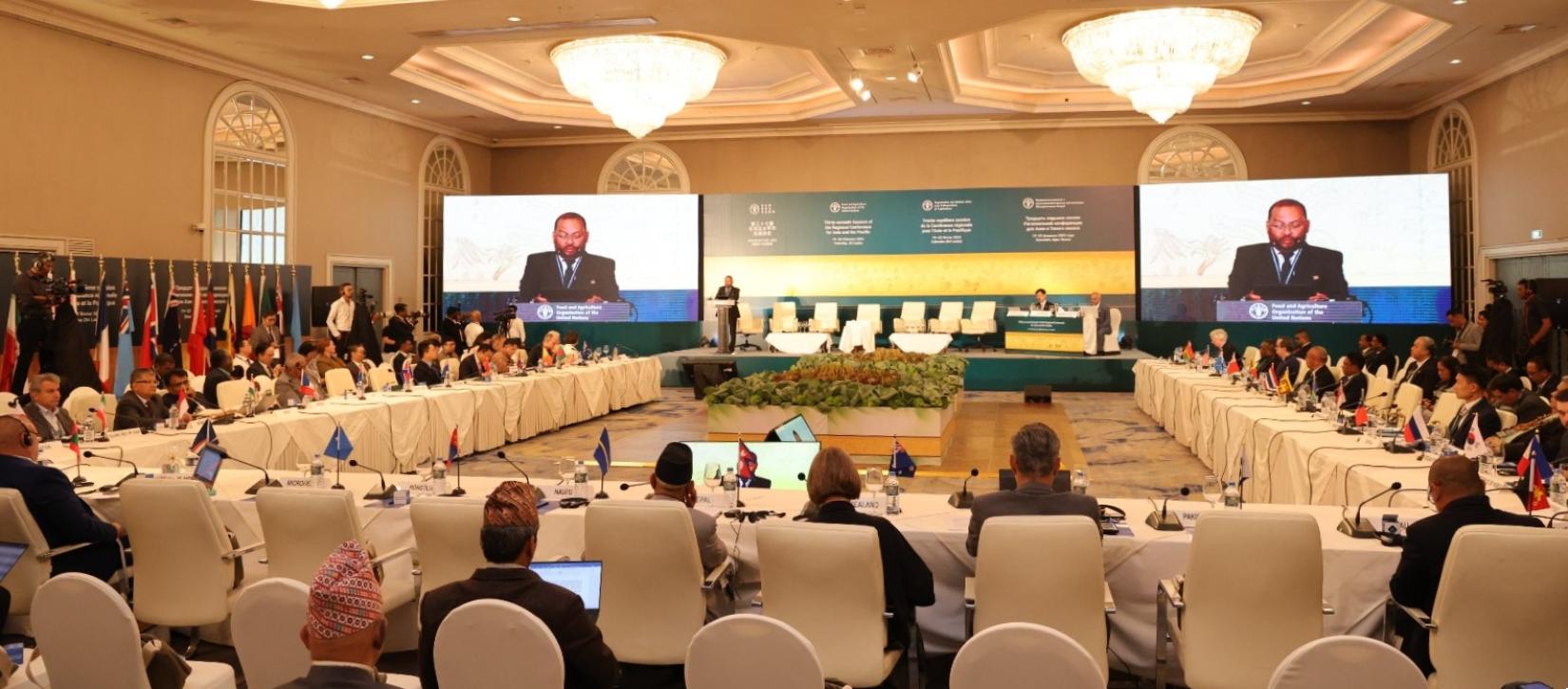Governments from Asia and the Pacific gather to review lessons learned from pandemic and environmental crises and transform agrifood systems for present and future generations
19 February 2024

Government policymakers from across the vast Asia and Pacific region are meeting here this week to agree a pathway to reform their agrifood systems and accelerate recovery from pandemic and environmental crises, the Food and Agriculture Organization of the United Nations (FAO), reported today.
Government Ministers and Heads of Delegation from as many as 46 FAO Member Nations have gathered in the Sri Lankan capital for the opening of the 37th Ministerial Session of the FAO Regional Conference for Asia and the Pacific (APRC37). The APRC37 is hosted by the Government of Sri Lanka.
The FAO Director-General, Dr QU Dongyu, is leading a delegation from FAO headquarters in Rome to participate in the four-day forum. He will make a Statement to Conference on the second (Inaugural) day of the APRC37. It’s anticipated the President of Sri Lanka, Ranil Wickremesinghe, will also speak during the morning of the Inaugural Day (20 Feb).
Many challenges remain to fight hunger, poverty and inequalities
The global pandemic and years of environmental crises have hit this region disproportionately hard, with economic progress and individual livelihoods regressed, and floods, droughts and tropical storms badly affecting agricultural production in some parts of the region that are least resilient.
Meantime, hunger and other forms of malnutrition persist, with nearly 371 million people in Asia-Pacific who are undernourished. At the same time, the increasing cost of a healthy diet is leaving many families unable to afford one.
Given the setbacks over the last two years, and the decline in progress in the fight against hunger that preceded the pandemic, it is essential to transform the region’s food systems so that they become more efficient, inclusive, resilient, and sustainable, the Conference delegates heard during today’s opening session.
Evidence-based science, innovation and technology point the way forward
In order for FAO Member Nations to accelerate this Agrifood Systems Transformation, three pathways were proposed.
First, by identifying triggers of foresight, shaping, fine-tuning, and implementing food systems transformation pathways through the process fostered by the UN Food Systems Summit 2021, and the follow-up to that Summit, the ‘Stock Taking Moment’ convened last year.
Second, to end hunger there must be much more investment and financing for such a transformation – both from governments and from the private sector and other international financial institutions.
And finally, the region needed to build resilience in its plant, livestock, fisheries, and forestry sectors, while promoting nature-based solutions and emphasizing science, innovation and digitalization in communities large and small while disseminating climate and energy-smart agricultural practices.
The Ministers and Heads of Delegation will participate in a number of roundtable discussions. One is focusing on lessons learned from the pandemic and its impact on food security and nutrition, another on modernization and digitization for smallholders in aquaculture and livestock, building resilience through agrifood systems transformation, the need for investment and financing for poverty reduction and modernization, and another on saving food and water and reducing food loss and waste.
During the APRC37, a Special Ministerial Meeting for Small Island Developing States (SIDS), Least Developed Countries (LDCs), and Land Locked Developing Countries (LLDCs) will be held, with many Ministers from Pacific Island nations participating.
Another special ministerial event on the final day of APRC37 will focus on Agrotourism in Asia and the Pacific, and how it can accelerate rural development and enhance livelihoods.
Civil Society Organizations and the private sector have also been invited to speak at the conference.



